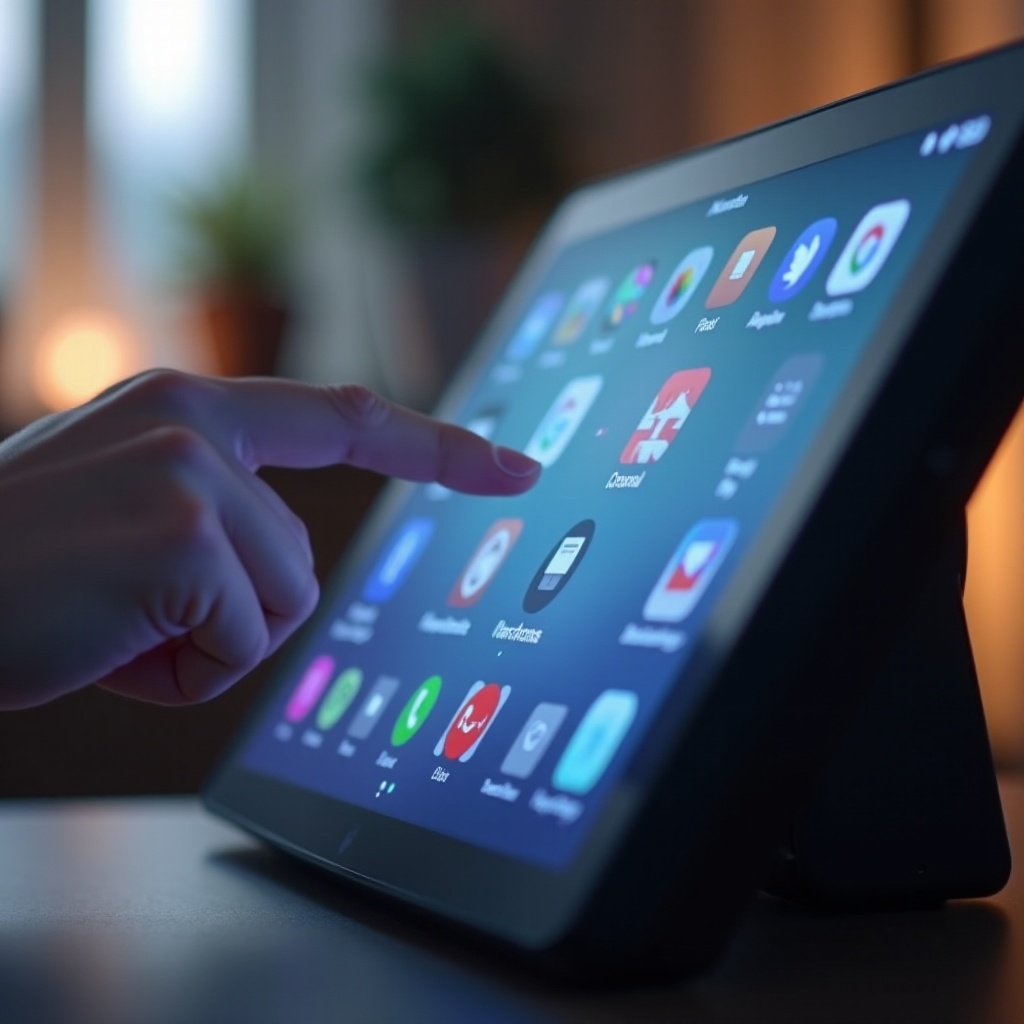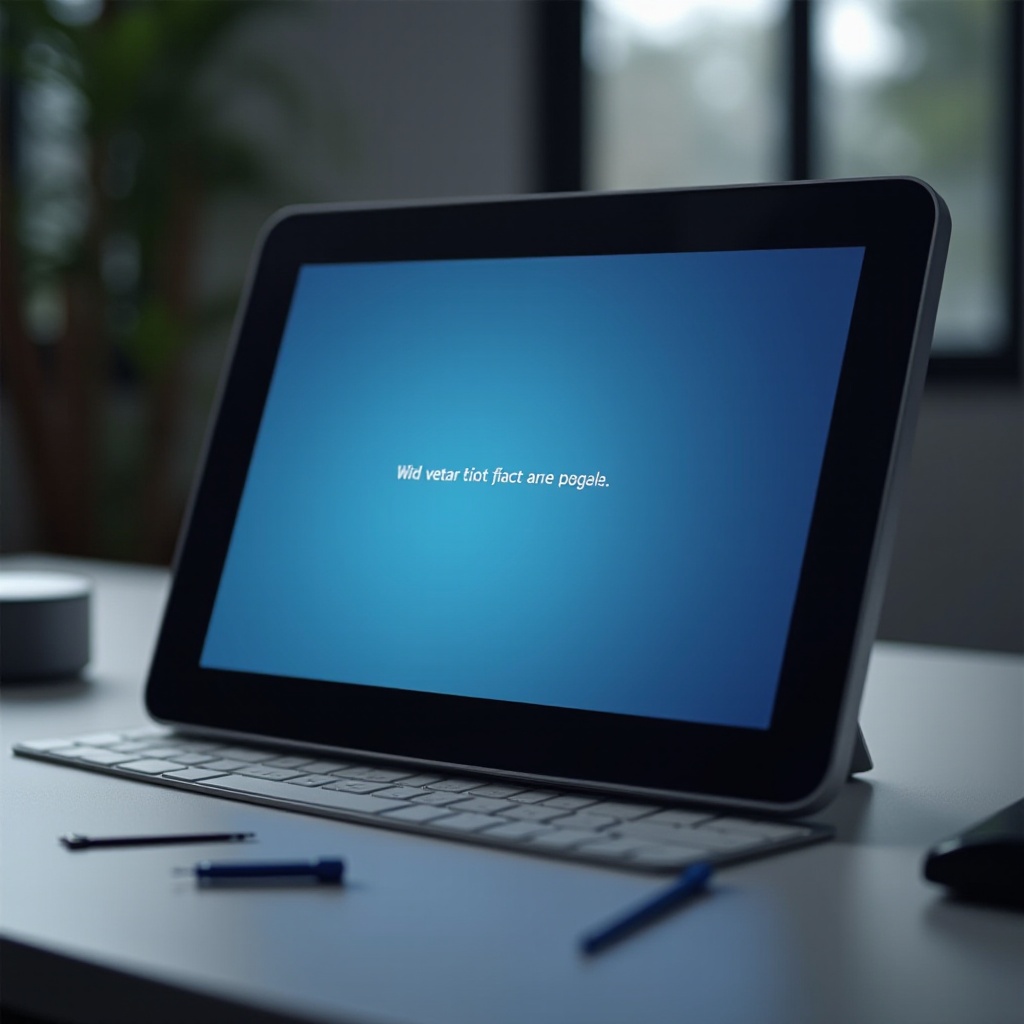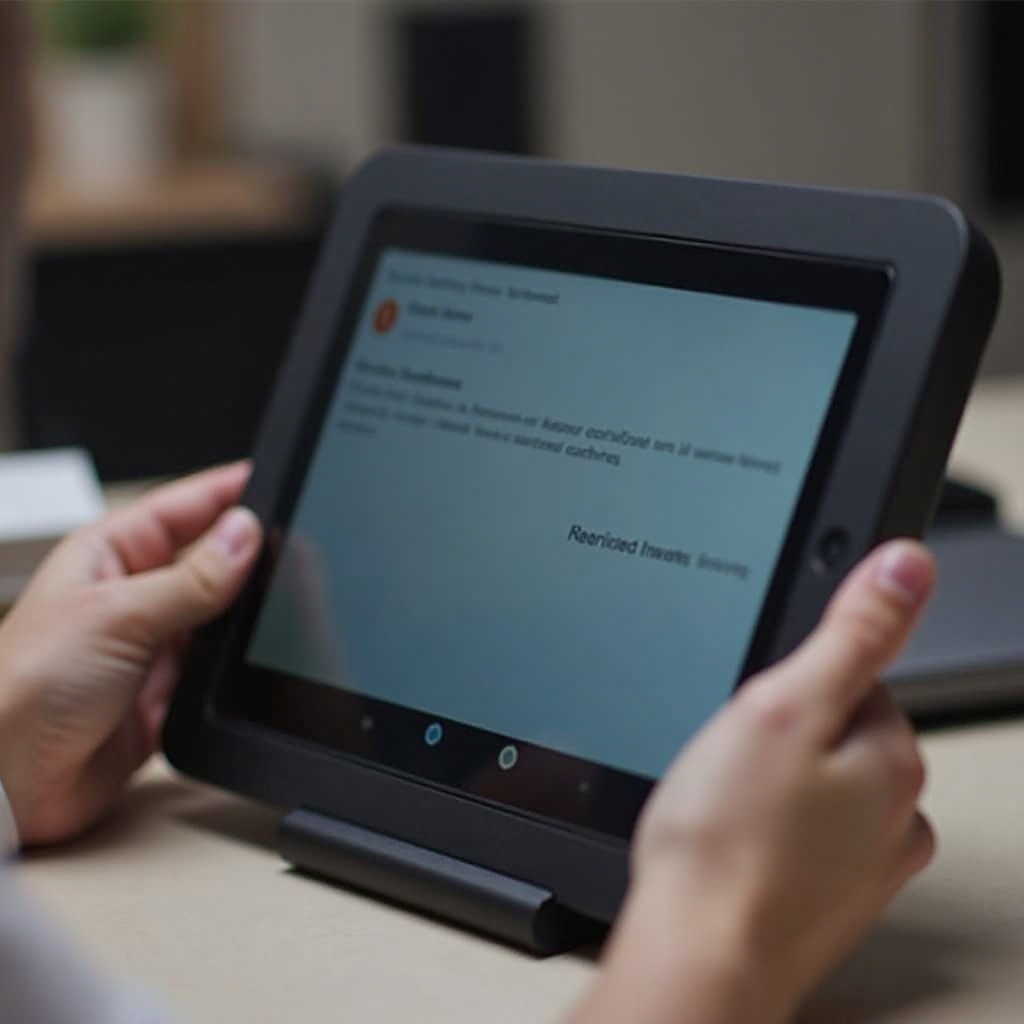
Introduction
In today’s tech-savvy world, the Echo Show stands out as a versatile device, delivering Alexa’s capabilities through an engaging touch screen interface. Yet, like all electronic gadgets, it can falter. A frequently encountered issue is an unresponsive touch screen, disrupting its multifunctional purpose, impacting your day-to-day activities, and reducing your productivity. This comprehensive guide seeks to help you identify common causes and offers strategic solutions to fix your Echo Show’s touch screen maladies. Whether the challenge originates from a temporary software glitch, a physical hardware defect, or user error, we’ll guide you toward a resolution. Follow our troubleshooting steps to bring your Echo Show back to life seamlessly.

Common Causes of Touch Screen Malfunctions
Understanding the usual culprits behind touch screen failures is essential in addressing the Echo Show’s problems. Let’s dive into some prevalent issues.
Software-Related Issues
Software anomalies are a frequent source of touch screen problems. These may include problematic apps, outdated system software, or internal operating system conflicts, making the Echo Show screen freeze and become unresponsive. Routine software updates and maintenance are key to mitigating these issues and keeping your device in peak condition.
Hardware Problems
Turning our attention to the physical side, defective internal components can impair screen sensitivity and responsiveness. A failure within the digitizer often affects touch input accuracy. Additionally, physical damage from drops or moisture exposure can swiftly lead to hardware malfunctions.
User-Induced Errors
Sometimes, the root cause might simply be human error. Incorrect handling or unintended settings changes can cause touch screen issues. Obstructions by dirt, grime, or even incorrect mode activation can hinder screen efficiency.
Understanding these causes equips you with the knowledge required to deploy the right troubleshooting steps.

Basic Troubleshooting Steps
Starting with basic troubleshooting techniques can quickly resolve common touch screen issues and restore normal operation.
Restart the Device
Rebooting is often the simplest way to resolve electronic hiccups. This process refreshes the system and may clear any temporary errors disrupting touch sensitivity.
Check for Software Updates
Ensure your Echo Show is running the most current software. Updates usually contain fixes for known issues and enhance device performance. Confirm updates within the settings menu.
Ensure Proper Power Supply
An inconsistent power supply can be a silent saboteur. Verify the power source’s stability and ensure the Echo Show is connected to a reliable adapter and outlet to avert any disruptions.
If these actions don’t resolve the touch screen issue, advanced diagnostics might be necessary.

Advanced Troubleshooting Techniques
When basic steps fall short, it’s time to apply more sophisticated strategies.
Perform a Soft Reset
A soft reset does not erase saved settings. To execute a soft reset, press down the power button for about 20 seconds. This action resolves deeper caching issues without data loss.
Reset to Factory Settings
When persistent issues prevail, consider restoring factory settings. Be aware that this will delete all customizations and saved data. Access this option via Settings > Device Options > Reset to Factory Defaults.
Analyze Touch Screen Sensitivity
Adjusting the touch screen sensitivity may fix response issues. In your device’s configuration menu, ensure the sensitivity settings align with your preferences.
Advanced techniques delve into the core of the device’s processes and can resolve stubborn issues when elementary methods are insufficient.
Hardware Inspection and Maintenance Tips
Overcoming hardware issues requires careful inspection and routine maintenance of your device.
Inspect for Physical Damage
Scrutinize your Echo Show for visible damage, such as cracks or dents that could compromise performance. Consider professional repair if such damage is spotted, ensuring capable hands resolve the issue.
Ensure a Clean Screen Surface
Dirt and residues can impair touch response. Clean the screen with a soft, slightly damp cloth or suitable cleaner to ensure optimal touch efficiency.
Verify Connection Integrity
Double-check that all cables are secure and undamaged. Faulty connections often lead to erratic screen behavior and power supply inconsistencies.
By maintaining the Echo Show’s hardware condition, you lessen the likelihood of future malfunction.
When to Contact Customer Support
Occasionally, the problem necessitates the intervention of a professional, knowing when to seek help is crucial.
Signs of Persistent Issues
After applying troubleshooting efforts, persistent problems may signal deeper issues warranting expert attention. Do not hesitate to reach out for help.
Understanding Warranty and Repair Options
Always check your warranty status before opting for repairs. Engaging authorized customer support can ensure your Echo Show receives expert handling and potential cost savings.
Knowing when to leverage professional support can save time and deliver a more reliable solution.
Conclusion
While touch screen issues with the Echo Show can be disruptive, they are typically surmountable. By correctly diagnosing the problem and applying suitable troubleshooting techniques, you can restore your device functionality. If challenges persist, professional support remains a viable path, especially when under warranty. Consistently updating your device and conducting regular maintenance can prevent future issues, ensuring a smooth and gratifying user experience.
Frequently Asked Questions
Why is my Echo Show unresponsive to touch?
Your Echo Show might be unresponsive due to software glitches, hardware failures, or external factors like dirt and damages. Start with basic troubleshooting to identify and resolve the problem.
How can I perform a factory reset on my Echo Show?
Navigate to Settings > Device Options > Reset to Factory Defaults. This will erase your data and settings, restoring the Echo Show to its original configuration.
Is it possible to fix a hardware issue on my own?
Some minor issues, like cleaning the screen or checking cable connections, can be handled independently. However, complex hardware problems often require professional repair services.
